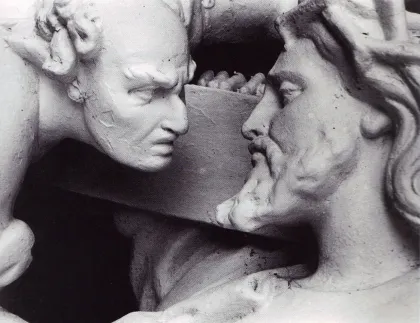The Prophecy of Zechariah – Part 10: Prophet of the Holocaust
The Prophecy of Zechariah – Part 10: Prophet of the Holocaust
This will be the tenth and final segment of our presentation of the prophecy of Zechariah. We will not attempt to summarize what we have seen thus far in its entirety, but we shall mention that throughout the entire book of the prophet it is fully evident that Zechariah’s writing not only contains prophecies which allude to Christ, but rather, in every way he is a Messianic prophet. In his opening chapters his writings employ the two chief figures of the Jerusalem of his time, Zerubbabel the governor and Joshua the high priest, as types for Christ in order to make prophecies concerning both Christ and the nature of His enemies and other aspects of His earthly ministry, and many other similar prophecies concerning Christ are found throughout the subsequent chapters.
It should also be evident that, aside from the coming of the Messiah, a primary subject of Zechariah’s prophecy is the tribes of Israel in their captivity. And aside from statements here and there which may pertain to the 70-weeks Kingdom in part, the Jerusalem of Zechariah is representative of the people of Israel spread abroad in their captivity. Zechariah frequently spoke of these people as they had already been scattered, also promising that they would greatly increase in their numbers, and fully inferring that these things were indeed accomplished by his own time, as he often used the past tense in relation to those people who had been taken away by the Assyrians and the captivity of Egypt (Zechariah 10:8). None of these prophecies have anything to do with the people now called Jews, although Jews are mentioned at the very end of the book.






 Please click here for our mailing list sign-up page.
Please click here for our mailing list sign-up page.








Recent comments